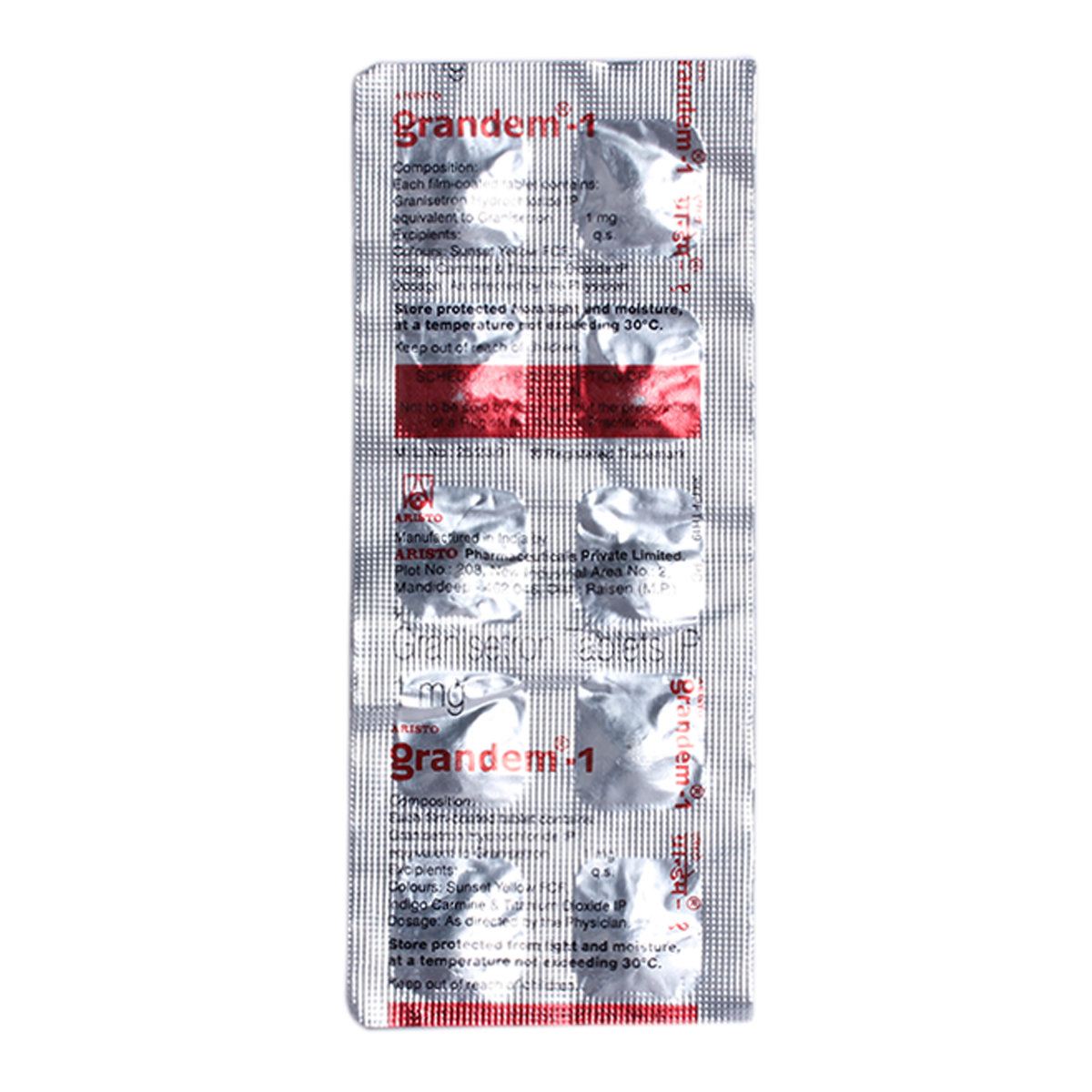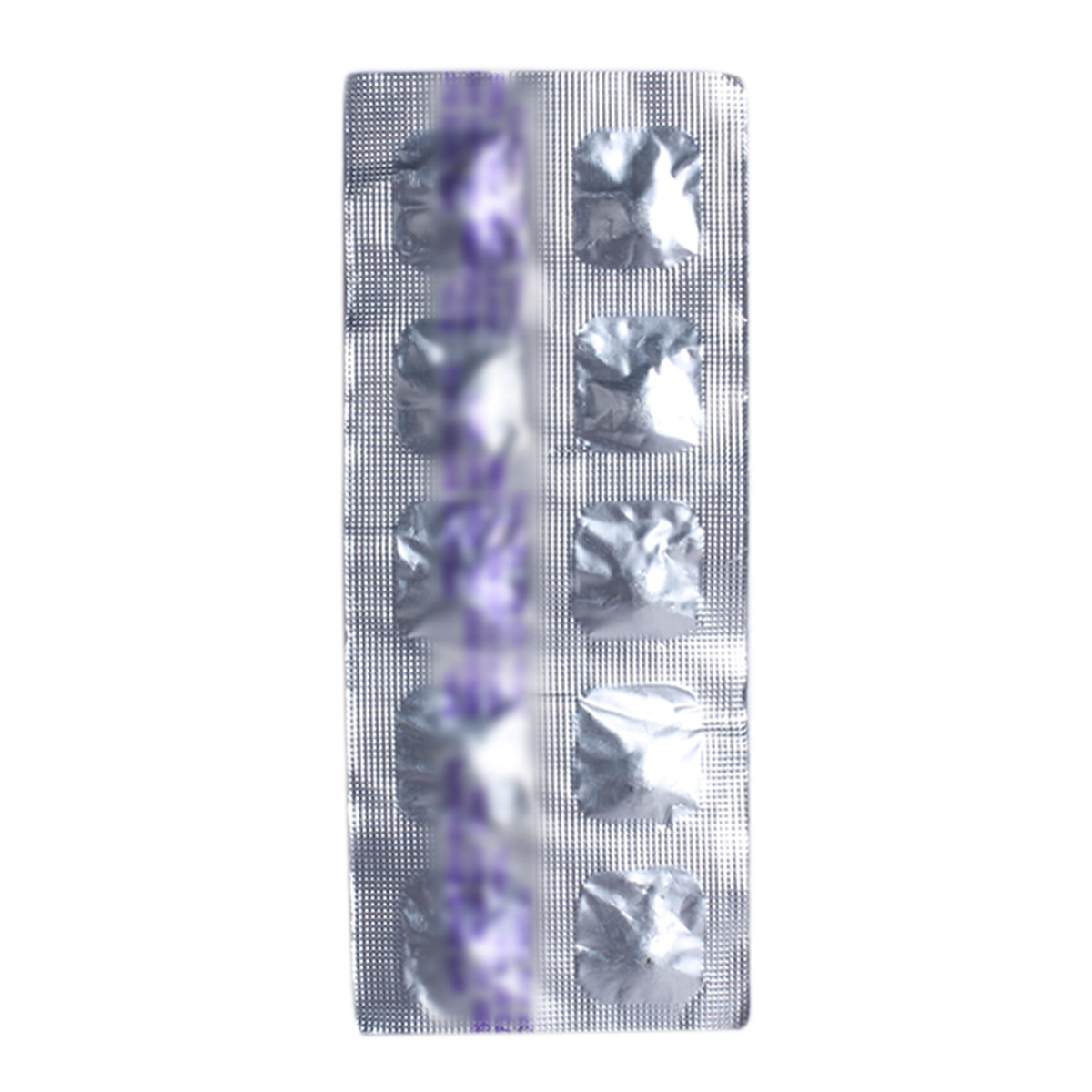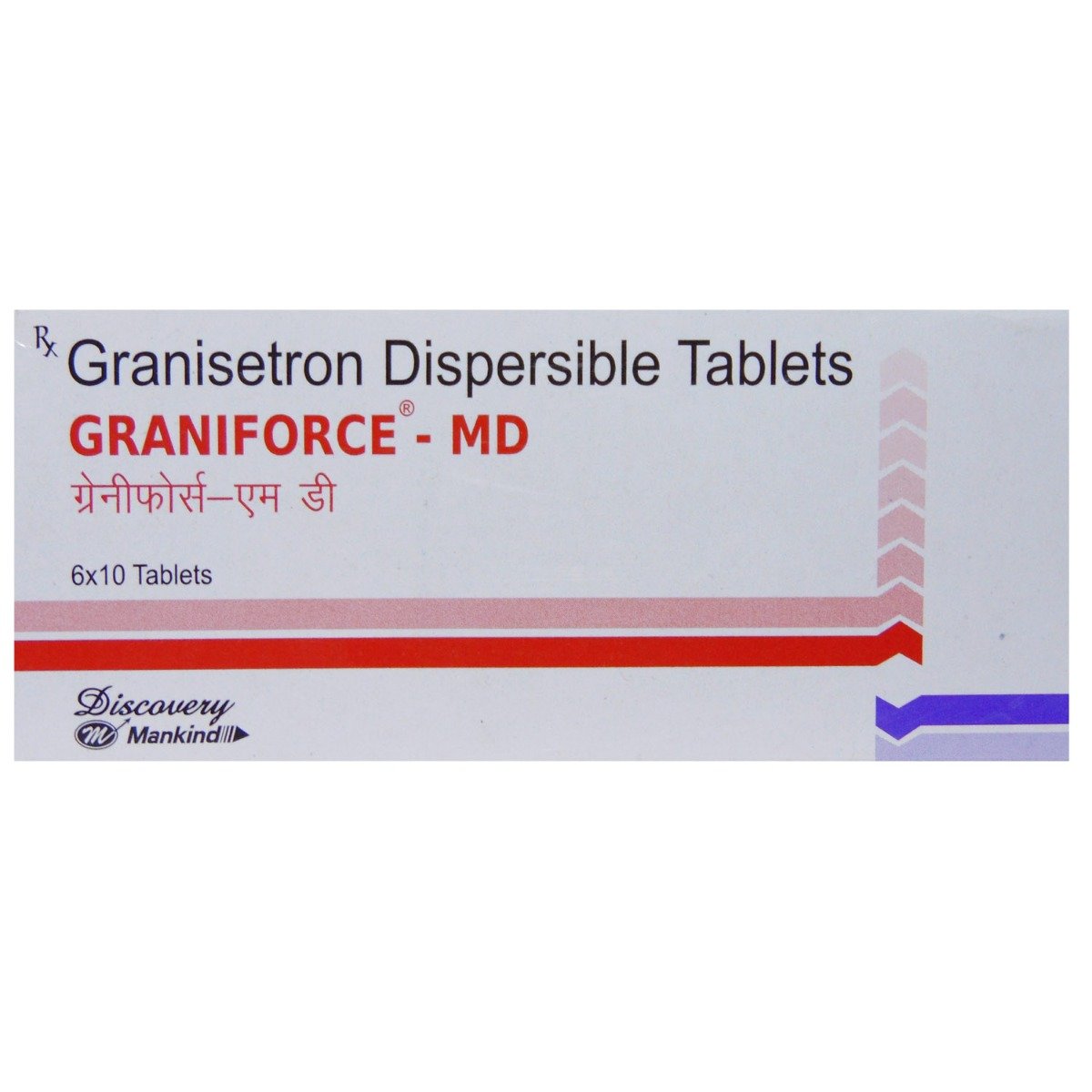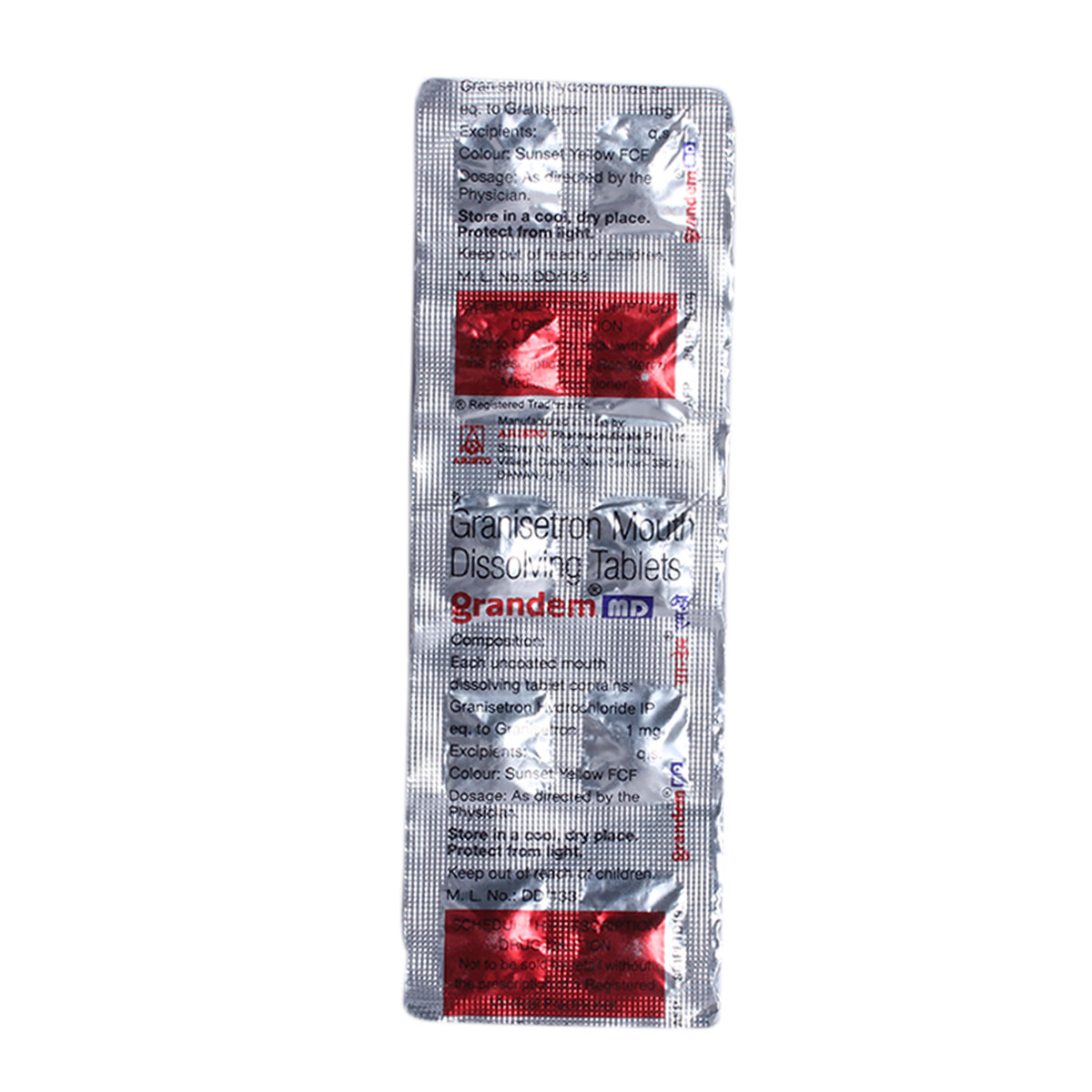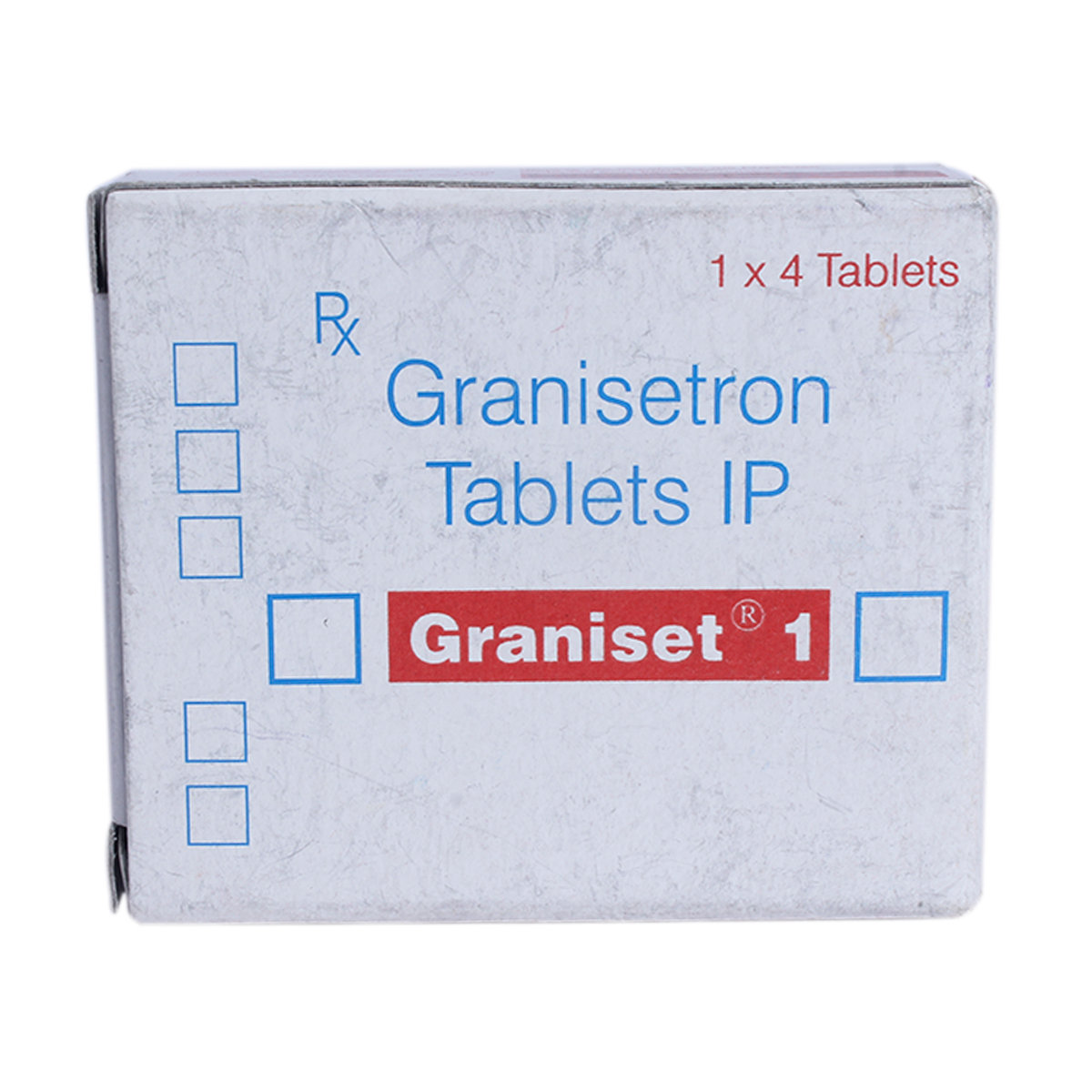Grandem-1 Tablet 10's
MRP ₹98.5
(Inclusive of all Taxes)
₹14.8 Cashback (15%)
Selected Pack Size:10
10 ₹88.7
(₹8.87 per unit)
In Stock
Provide Delivery Location
Online payment accepted
 Prescription drug
Prescription drugWhats That
Composition :
Manufacturer/Marketer :
Consume Type :
Expires on or after :
Return Policy :
About Grandem-1 Tablet
Grandem-1 Tablet belongs to the class of ‘anti-emetic’ drugs, primarily used to treat nausea and vomiting caused by medical treatments, such as chemotherapy or radiation treatment for cancer, etc. Nausea is defined as stomach discomfort and the sensation of an urge to vomit. Vomiting is the forcible voluntary or involuntary emptying of contents of the stomach through the mouth.
Grandem-1 Tablet contains an anti-emetic (eases vomiting symptoms) medicine, 'Granisetron' that belongs to the class of serotonin receptor antagonists or serotonin blockers. It works by blocking the activity of serotonin (chemical messenger) in the brain that triggers nausea and vomiting during cancer treatment (chemotherapy or radiation therapy) or after surgery.
Your doctor will decide the dose and duration based on the severity of your medical condition. Common side effects of Grandem-1 Tablet include diarrhoea, constipation, stomach pain, weakness, headache, fever, dizziness, drowsiness, trouble sleeping , and anxiety. These side effects are not familiar to everyone and vary individually. If you notice any side effects that are not manageable, please consult your doctor.
If you use other prescription or non-prescription medicines, inform your doctor before using Grandem-1 Tablet . Let your doctor know if you have any liver, kidney, or heart diseases, stomach/intestinal problems, allergic reactions , and low levels of potassium and magnesium in the blood before starting Grandem-1 Tablet . Grandem-1 Tablet may make you dizzy or drowsy, hence avoid driving if you are not mentally alert. Consult your doctor before taking Grandem-1 Tablet if you are pregnant, planning for pregnancy, or breastfeeding. Avoid consuming alcohol along with Grandem-1 Tablet as it could lead to increased drowsiness.
Uses of Grandem-1 Tablet
Directions for Use
Key Benefits
Grandem-1 Tablet contains an anti-emetic drug, 'Granisetron' that treats nausea and vomiting caused due to cancer treatment (chemotherapy or radiation therapy) or after surgery, etc. Granisetron belongs to the class of 5-HT3 receptor antagonists (also called serotonin receptor antagonists or serotonin blockers). When the cells lining the gastrointestinal tract are damaged by chemotherapy or radiation therapy, they release a natural substance called serotonin (5HT3, 5-hydroxytryptamine). This serotonin binds to serotonin receptors on nerves that induces nausea and vomiting. Grandem-1 Tablet works by blocking the activity of serotonin in the brain and preventing post-operative nausea and vomiting.
Storage
- Hydrate your body: Drink enough water to prevent dehydration and headaches.
- Calm Your Mind: Deep breathing and meditation can help you relax and relieve stress.
- Rest and Recharge: Sleep for 7-8 hours to reduce headache triggers.
- Take rest: lie down in a quiet, dark environment.
- Cold or warm compresses can help reduce tension.
- Stay Upright: Maintain good posture to keep symptoms from getting worse.
- To treat headaches naturally, try acupuncture or massage therapy.
- Over-the-counter pain relievers include acetaminophen and ibuprofen.
- Prescription Assistance: Speak with your doctor about more substantial drug alternatives.
- Severe Headaches: Seek emergency medical assistance for sudden, severe headaches.
- Frequent Headaches: If you get reoccurring headaches, consult your doctor.
- Headaches with Symptoms: Seek medical attention if your headaches include fever, disorientation, or weakness.
- Inform your doctor about dizziness symptoms. They may adjust your medication regimen or prescribe additional medications to manage symptoms.
- Follow your doctor's instructions for taking medication, and take it at the same time every day to minimize dizziness.
- When standing up, do so slowly and carefully to avoid sudden dizziness.
- Avoid making sudden movements, such as turning or bending quickly, which can exacerbate dizziness.
- Drink plenty of water throughout the day to stay hydrated and help alleviate dizziness symptoms.
- If you're feeling dizzy, sit or lie down and rest until the dizziness passes.
- Track when dizziness occurs and any factors that may trigger it, and share this information with your doctor to help manage symptoms.
- Inform your doctor about the nausea and discuss possible alternatives to the medication or adjustments to the dosage.
- Divide your daily food intake into smaller, more frequent meals to reduce nausea.
- Opt for bland, easily digestible foods like crackers, toast, plain rice, bananas, and applesauce.
- Avoid certain foods that can trigger nausea, such as fatty, greasy, spicy, and smelly foods.
- Drink plenty of fluids, such as water, clear broth, or electrolyte-rich beverages like coconut water or sports drinks.
- Use ginger (tea, ale, or candies) to help relieve nausea.
- Get adequate rest and also avoid strenuous activities that can worsen nausea.
- Talk to your doctor about taking anti-nausea medication if your nausea is severe.
- Record when your nausea occurs, what triggers it, and what provides relief to help you identify patterns and manage your symptoms more effectively.
- Inform your doctor about your constipation symptoms. They may adjust your medication or advise alternative treatments.
- Stay hydrated by drinking sufficient of water (at least 8-10 glasses a day) to help soften stool and promote bowel movements.
- Increase fibre intake by eating foods high in fibre, such as fruits, whole grains, vegetables and legumes, to help bulk up the stool.
- Establish a bowel routine by trying to go to the bathroom at the same time each day to train your bowels.
- Engaging in regular exercise, like walking or yoga, can support in bowel movement stimulation.
- Consult your doctor if constipation persists, and discuss alternative treatments or adjustments to your medication.
- Preventing Vomiting (Before it Happens)
- Take medication exactly as prescribed by your doctor. This can help minimize side effects, including vomiting.
- Having a small meal before taking your medication can help reduce nausea and vomiting.
- Talk to your doctor about taking anti-nausea medication along with your prescribed medication.
- Managing Vomiting (If it Happens)
- Try taking ginger in the form of tea, ale, or candy to help alleviate nausea and vomiting.
- What to Do if Vomiting Persists
- Consult your doctor if vomiting continues or worsens, consult the doctor for guidance on adjusting your medication or additional treatment.
- Rest well; get enough sleep.
- Eat a balanced diet and drink enough water.
- Manage stress with yoga and meditation.
- Limit alcohol and caffeine.
- Physical activities like walking or jogging might help boost energy and make you feel less tired.
- Drink water or other clear fluids.
- To prevent worsening of pain, limit intake of tea, coffee, or alcohol.
- Include bland foods like rice, toast, crackers, and rice in your diet.
- Avoid lying down immediately after eating as it may cause indigestion or heartburn.
- Avoid acidic and spicy food as it may cause indigestion.
Drug Warnings
Grandem-1 Tablet may cause serotonin syndrome/toxicity when used with other drugs like ecstasy (MDMA) and antidepressants. Hence it is suggested to seek medical advice if you are using any prescription or non-prescription medicines. Inform your doctor if you have a history of stomach/intestinal problems like stomach ache, wind, feeling or being sick, and difficulty passing stools, heart problems, electrolyte imbalance (potassium, sodium or calcium), and liver or kidney diseases before starting Grandem-1 Tablet . Please consult your doctor if you are pregnant or breastfeeding if the doctor has advised you Grandem-1 Tablet . Grandem-1 Tablet may make you feel dizzy, so drive only if you are alert. Avoid consuming alcohol as it could lead to increased dizziness. Grandem-1 Tablet is not recommended in children below two years of age.
Drug-Drug Interactions
Drug-Drug Interactions
Login/Sign Up
Taking Grandem-1 Tablet with Thioridazine can increase the risk of an irregular heart rhythm.
How to manage the interaction:
Taking Grandem-1 Tablet with Thioridazine is not recommended as it can result in an interaction, it can be taken if a doctor has advised it. However, if you experience abrupt dizziness, lightheadedness, fainting, shortness of breath, or heart palpitations while taking any of these drugs, consult a doctor immediately. Do not discontinue any medications without a doctor's advice.
When Grandem-1 Tablet is taken with Saquinavir, can increase the risk of an irregular heart rhythm.
How to manage the interaction:
Taking Grandem-1 Tablet with Saquinavir is not recommended as it can result in an interaction, it can be taken if a doctor has advised it. However, if you experience abrupt dizziness, lightheadedness, fainting, shortness of breath, or heart palpitations while taking any of these drugs, consult a doctor immediately. Do not discontinue any medications without a doctor's advice.
Taking Grandem-1 Tablet with mesoridazine can increase the risk of an irregular heart rhythm. I
How to manage the interaction:
Taking Mesoridazine with Grandem-1 Tablet is not recommended as it can result in an interaction, it can be taken if a doctor has advised it. However, if you experience abrupt dizziness, lightheadedness, fainting, shortness of breath, or heart palpitations while taking any of these drugs, consult a doctor immediately. Do not discontinue any medications without a doctor's advice.
Taking Grandem-1 Tablet with Sparfloxacin can increase the chance of a serious abnormal heart rhythm.
How to manage the interaction:
Taking Grandem-1 Tablet with Sparfloxacin is not recommended as it can result in an interaction, it can be taken if a doctor has advised it. However, if you experience sudden dizziness, lightheadedness, fainting, breathing difficulty, or rapid heartbeat, consult the doctor immediately. Do not stop using any medications without talking to a doctor.
Taking Grandem-1 Tablet with Cisapride can increase the risk of an irregular heart rhythm.
How to manage the interaction:
Taking Grandem-1 Tablet with Cisapride is not recommended as it can result in an interaction, it can be taken if a doctor has advised it. However, if you experience abrupt dizziness, lightheadedness, fainting, shortness of breath, or heart palpitations while taking any of these drugs, consult a doctor immediately. Do not discontinue any medications without a doctor's advice.
Taking Grandem-1 Tablet with Ziprasidone can increase the risk of abnormal heart rhythm.
How to manage the interaction:
Taking Grandem-1 Tablet with Ziprasidone is not recommended, as it can result in an interaction, it can be taken if a doctor has advised it. However, if you experience sudden dizziness, lightheadedness, fainting, breathing difficulty, or rapid heartbeat, consult the doctor immediately. Do not stop using any medications without talking to a doctor.
Taking Grandem-1 Tablet with Pimozide can increase the risk of an irregular heart rhythm.
How to manage the interaction:
Taking Grandem-1 Tablet with Pimozide is not recommended as it can result in an interaction, it can be taken if a doctor has advised it. However, if you experience abrupt dizziness, lightheadedness, fainting, shortness of breath, or heart palpitations while taking any of these drugs, consult a doctor immediately. Do not stop using any medications without talking to a doctor.
Taking Grandem-1 Tablet with Dronedarone can increase the risk of irregular heart rhythm.
How to manage the interaction:
Taking Grandem-1 Tablet with Dronedarone is not recommended as it can result in an interaction, it can be taken if a doctor has advised it. However, if you experience abrupt dizziness, lightheadedness, fainting, shortness of breath, or heart palpitations while taking any of these drugs, consult a doctor immediately. Do not discontinue any medications without a doctor's advice.
Taking Grandem-1 Tablet with trazodone increases the risk of serotonin syndrome (a condition in which a chemical called serotonin increase in body).
How to manage the interaction:
There may be a possibility of interaction between Trazodone and Grandem-1 Tablet, but it can be taken if prescribed by a doctor. However, if you experience confusion, seizure(fits), extreme changes in blood pressure, increased heart rate, fever, excessive sweating, shivering or shaking, blurred vision, muscle spasm, tremor (shaking of hands & legs), incoordination, stomach pain, nausea, vomiting, and diarrhea contact your doctor right away. Do not discontinue any medications without first consulting a doctor.
Using Moxifloxacin together with Grandem-1 Tablet can increase the risk of an irregular heart rhythm.
How to manage the interaction:
Taking Moxifloxacin with Grandem-1 Tablet together can result in an interaction, but it can be taken if a doctor has advised it. However, if you experience dizziness, breathing difficulty, or rapid heartbeat, consult the doctor immediately. Do not stop using any medications without talking to a doctor.
Drug-Food Interactions
Drug-Food Interactions
Login/Sign Up
Diet & Lifestyle Advise
- Avoid chocolates, junk food, cheese, processed food, alcohol and smoking.
- You can try increasing your mindfulness by doing yoga, meditation, mindfulness-based cognitive therapy and stress reduction techniques.
- Drink enough water to stay hydrated and limit or avoid alcohol and caffeine.
- Include a diet rich in whole grains, vegetables and fruits. This is a healthier option than eating a lot of simple carbohydrates found in processed foods.
- You can include antioxidants in your daily diet like ashwagandha, omega-3 fatty acids, green tea and lemon balm.
- Try to spend time with your friends and family. Having a strong social network may help you lower your risk of anxiety.
Side Effects of Grandem-1 Tablet
- Diarrhoea
- Constipation
- Stomach pain
- Weakness
- Headache
- Fever
- Dizziness
- Drowsiness
- Trouble sleeping
- Anxiety
Habit Forming
Therapeutic Class
All Substitutes & Brand Comparisons
RX
Out of StockGranexa 1mg Tablet
Macleods Pharmaceuticals Ltd
₹16.12
(₹3.63 per unit)
59% CHEAPERRX
Out of StockGranirex-1 Tablet 10's
Bennet Pharmaceuticals Ltd
₹64.4
(₹5.8 per unit)
34% CHEAPERRX
Out of StockGranimet 1mg Tablet
Medishri Healthcare Pvt Ltd
₹70
(₹6.3 per unit)
28% CHEAPER
Author Details
We provide you with authentic, trustworthy and relevant information
Drug-Diseases Interactions
Drug-Diseases Interactions
Login/Sign Up
FAQs
Drug-Drug Interactions Checker List
- LITHIUM
- DULOXETINE
- AMIODARONE
- QUINIDINE
- RITONAVIR
- ERYTHROMYCIN
Special Advise
Let your doctor know that you are taking Grandem-1 Tablet if you are undergoing any medical tests.
Disease/Condition Glossary
Nausea is defined as stomach discomfort and the sensation of an urge to vomit. It is a precursor to vomiting. It is not a painful symptom but can cause discomfort in the chest, upper abdomen or back of the throat. Nausea can be triggered by various factors like motion from a car and plane, taking pills on an empty stomach, eating too much or too little and drinking excessive amounts of alcohol.
Vomiting or throwing up is the forcible voluntary or involuntary emptying of the stomach contents through the mouth. Vomiting can also occur without having any underlying diseases in conditions like pregnancy, hangover, overeating and motion sickness. Nausea or vomiting may be triggered by many factors, including food poisoning, gastritis (inflammation of the stomach lining), an ulcer or bulimia (eating disorder).

Have a query?
Alcohol
Safe if prescribed
You are recommended to limit or avoid alcohol consumption while taking Grandem-1 Tablet . Alcohol intake, along with Grandem-1 Tablet , may cause increased dizziness.
Pregnancy
Consult your doctor
It is not known if Grandem-1 Tablet affects pregnancy. Please consult your doctor if you are pregnant or planning to conceive before using Grandem-1 Tablet .
Breast Feeding
Consult your doctor
It is not known if this medicine passes into breast milk. Please consult your doctor before taking Grandem-1 Tablet if you are a nursing mother.
Driving
Safe if prescribed
Grandem-1 Tablet may make you feel dizzy that affects your mental ability. Do not drive or operate machinery if you experience dizziness.
Liver
Consult your doctor
Grandem-1 Tablet should be cautiously used by patients with liver diseases. Please consult your doctor if you have a history of liver impairment before starting Grandem-1 Tablet .
Kidney
Consult your doctor
Grandem-1 Tablet should be cautiously used by patients with kidney problems. Please consult your doctor if you have a history of kidney impairment/kidney disease.
Children
Safe if prescribed
Safety and efficacy of Grandem-1 Tablet are not established in children below 2 years of age.

